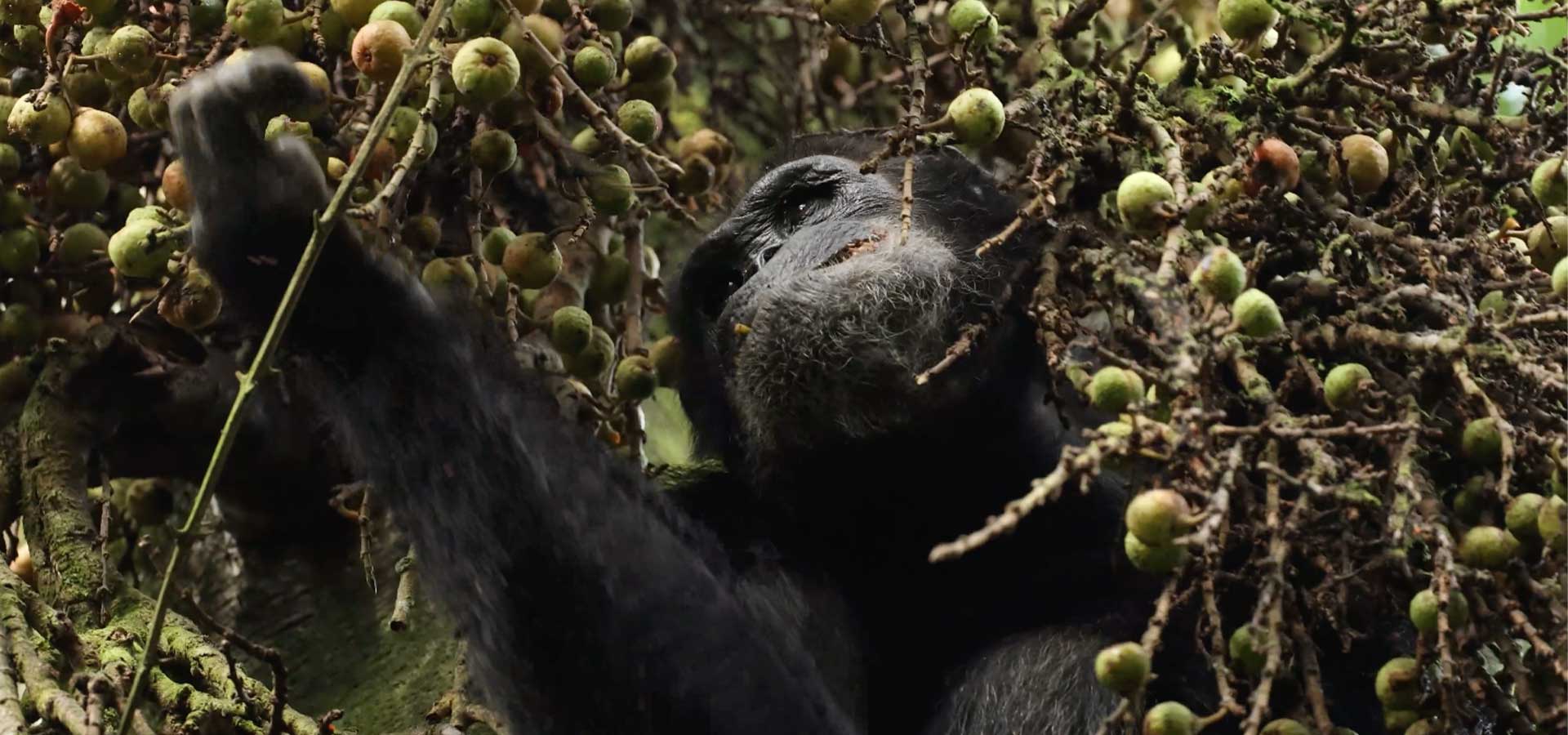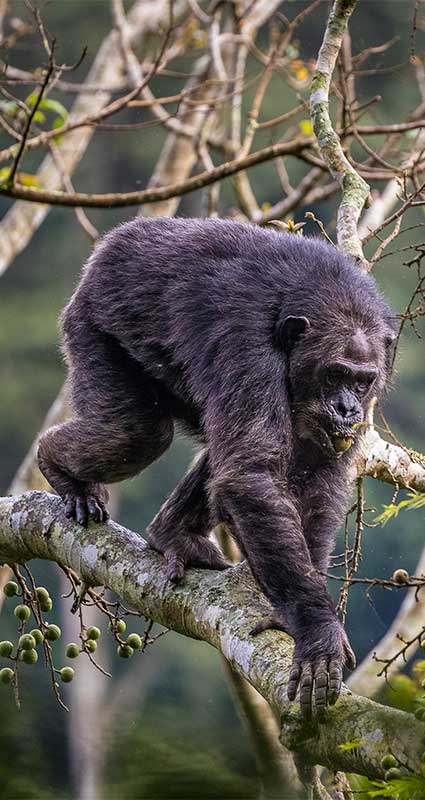SAFARI CAMPS for responsible travellers
The preferred booking platform for lodges & bush camps that offer tangible, measurable benefits for conservation & communities
Chimpanzees are far more active than gorillas - their dietary needs are greater, so they need to range further to find food. Chimp treks can last for three to seven hours, but the effort is always worthwhile as the encounter can be extraordinary.
Once you track them down, they may be foraging for food or hunting monkeys, in which case your encounter may be on the move. Or they may be relaxing and socialising, so you can expect a more sedate gorilla-like encounter.
Coming face to face with this sentient great ape is unlike any other animal encounter in Africa - unique.
Come chimp trekking with African Parks
More about chimpanzees & trekking
Chimps are found in forests across western and central Africa in troops averaging 35 members. They are our closest living relative (they share 98% of our DNA) and the smallest among the great apes.
There are two species
the common chimpanzee (Pan troglodytes) - with four subspecies
the bonobo or pygmy chimpanzee (Pan paniscus)
Chimpanzees, like humans, are omnivorous and feast mainly on fruit and plant matter plus honey, eggs, insects and the meat of small to medium-sized mammals such as monkeys which they track down in cooperative hunting parties. Read more about chimpanzees here.
The trekking pace is usually relaxed, but it will speed up if the chimpanzees are moving fast - as they do when hunting or fighting with other troops. The terrain is usually not as steep as it is for gorilla trekking, but Rwanda's Nyungwe National Park chimp treks can be on steep slopes.
Because you could find yourself walking for three to seven hours on slopy ground, you should have a moderate fitness level.
The minimum chimp trekking age is 15 years. There is no maximum age
What to pack: Water, snacks, lunch, raincoat, several layers of clothing, sun hat, hiking shoes/boots, towel, insect repellent and equipment such as binoculars, cameras and lenses. Backpack: Take a day pack for the above items;
Porter: Hire a porter for the hike to carry your backpack - freeing you to carry only binoculars and perhaps a camera. The cost is a fraction of your daily expenses on safari in Africa, yet it makes a big difference in the porter's life;
Photography: The forest can be dark, and the use of large lenses will be limited. Keep that big lens in your backpack, and use a general-purpose lens on your camera. Keep a dry lens cloth handy to wipe away dew and raindrops. Flash photography is not permitted while with the chimps;
Waterproofing: Carry a few waterproof bags for equipment in case of showers and high humidity;
Mask: Wear a surgical mask while you are with the chimps - they are susceptible to human illness;
Weather: Chimpanzee treks are in high-rainfall areas. The weather can swing from clear and hot to cold, with torrential rain in minutes.

